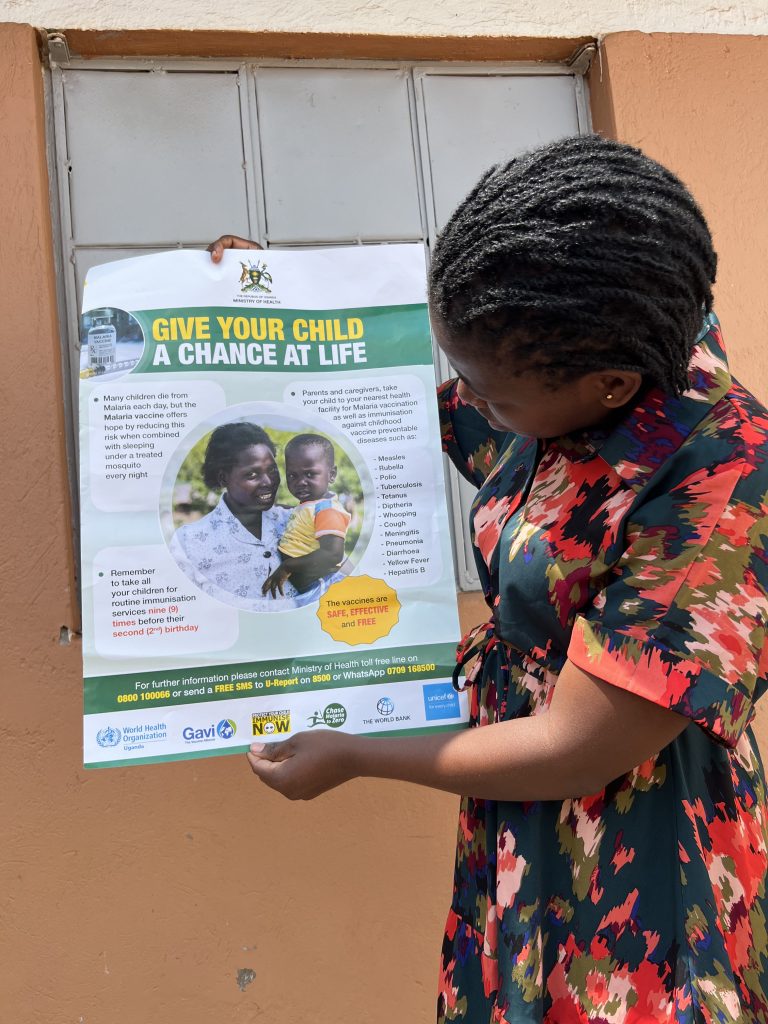Programs
Get to know what AEGY Uganda does.
AEGY STRATEGIC KEY ACTIVITIES.
Ensuring Health and Well-being
AEGY continue with the fight against HIV/AIDS by expanding access to Health care, Mental health, Maternal health, Nutrition, awareness campaigns, and comprehensive Sexual and Reproductive Health Services for young people in the region. AEGY continue its fight against HIV/AIDS by expanding access to healthcare, awareness campaigns, and comprehensive sexual and reproductive health services for young people in the region.
Promoting Sustainable Livelihoods and Organisation systems strengthen for better service delivery.
Empowering women and girls with skills, resources, and opportunities to secure sustainable livelihood fostering economic independence and resilience. Strengthened Monitoring, Evaluation and Learning (MEL), financial and program systems Strengthened internal controls, policies and procedures. AEGY continue with the campaign for Nutrition among children and expectant mothers.
Protecting the rights, advocate for the voiceless and Improved accountability and community responsiveness to rights violation among people.
Empowered community structures in responding to rights violation, GBV and abuse forms of abuse among vulnerable people. Strengthen citizen engagement in anti-corruption efforts and accountability increased. Safer environments that promote child safety, well-being and development at community and house hold level increased.
Enhancing Education Access and Quality
AEGY works to improve access to quality education for all school going children/youth and improve the quality of learning in Busoga by improving on the school learning environment, feeding at school and providing scholarships, mentoring, and implementing innovative educational programs that prepare them for meaningful careers.
Our Projects
NI-YETU Youth Empowerment (SRHR and SGBV Prevention)
With Funding from Plan International- SIDA Grant, AEGY Uganda has been the first organization in Busoga region to implement the NI-YETU YOUTH Empowerment project covering Kamuli District. The NI-YETU Youth Project is a youth social empowerment initiative which seeks to empower young people (10-24 years) with correct Knowledge, attitude and skills for reducing SGBV and improving their SRHR outcomes. Promoting use of reusable sanitary pads, training youth in life skills, promoting male involvement, preventing child pregnancy and mitigating the effect of child pregnancy


Mitigating effects and reducing spread of HIV/AIDS.
The support from MCC Uganda, MUCOBADI, TASU (U) Ltd has covered 16 Lower Local Governments in Kamuli District, to raise awareness on HIV prevention among children 1-14 years. Sending children back to school, training in life skills children of bedridden parents, promoting nutrition (ekitobero) for PLWHIV and children.
Participatory Action Research Project
TWAWEZA East Africa has support AEGY Implement a Participatory Action Research Project covering 6 Lower Local Government in Kamuli District. The community members have been able to identify problems they face and find solutions by themselves to the problem, they are demanding for services but also mobilise themselves to solve their own challenges such as fixing boreholes and repairing roads.


Hope Never Runs Dry
The “Hope Never Runs Dry” project for Orphans and Other Vulnerable Children (OVC) where we are supporting children stay in school. AEGY covers Kamuli and Mayuge District and are partnership with Shalom Junior Primary School in Mayuge to offer quality education to disadvantaged children. The children are counseled to accept leave with the problem.
Living with Shalom Project
With support from MCC Uganda AEGY promotes peace among the communities of Kamuli and Buyende District. Disseminate information on environment, making and use of improved cook stoves. Life skills promotion and development Environmental awareness campaigns (i.e. planting tress). We promote living in peace with yourself, Leaving in peace with others and leaving in peace with the environment.


Maternal New Born and Child Health
MCC Uganda support AEGY to implement maternal new born and child health in Kamuli District, Bugulumbya Sub County, plans under way to implement in Luuka and Buyende as per our strategic plan. Promoting nutrition for expectant mothers and the children using the “Ekitobero” model and promoting the back yard gardening, producing and consuming food. implementing two activities including;
- Health talks and home visits about care of new born, breast feeding, immunization.
- Training and follow up young mothers on how to prepare nutritious food (Kitobero)
EYE Universal SRHR Project
With funding from CARE International AEGY is implementing the project with aim of Empowering Young girls and women to decide over their bodies and ensure Universal access to comprehensive adolescent and youth friendly Sexual Reproductive Health and Rights (SRHR) information and services (EYE universal SRHR) With funding from Care international, the project aims at Increasing SRHR service utilization for adolescents and youth in Uganda, particularly in the high-burden district of Kamuli. On women’s empowerment, economic rights, and challenging harmful norms complements.
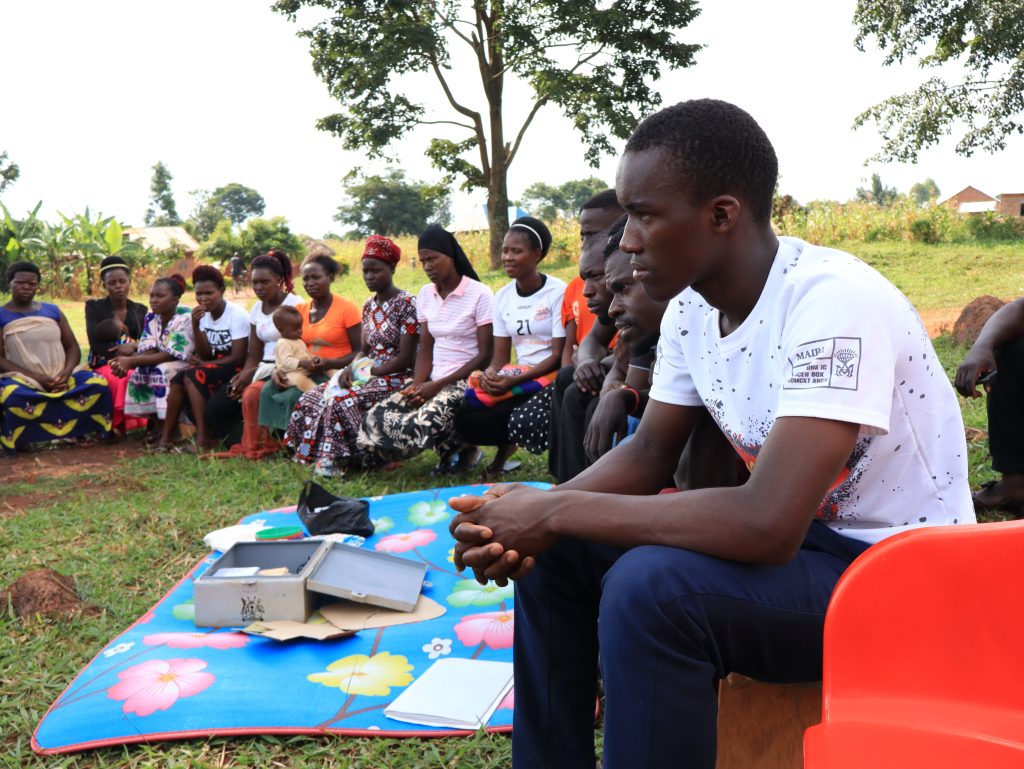

Performance Based Finances
Performance based finances funded by CORDAID International which aims at improving services delivery specifically Education and Health Services. This activity greatly resulted into improved service delivery.
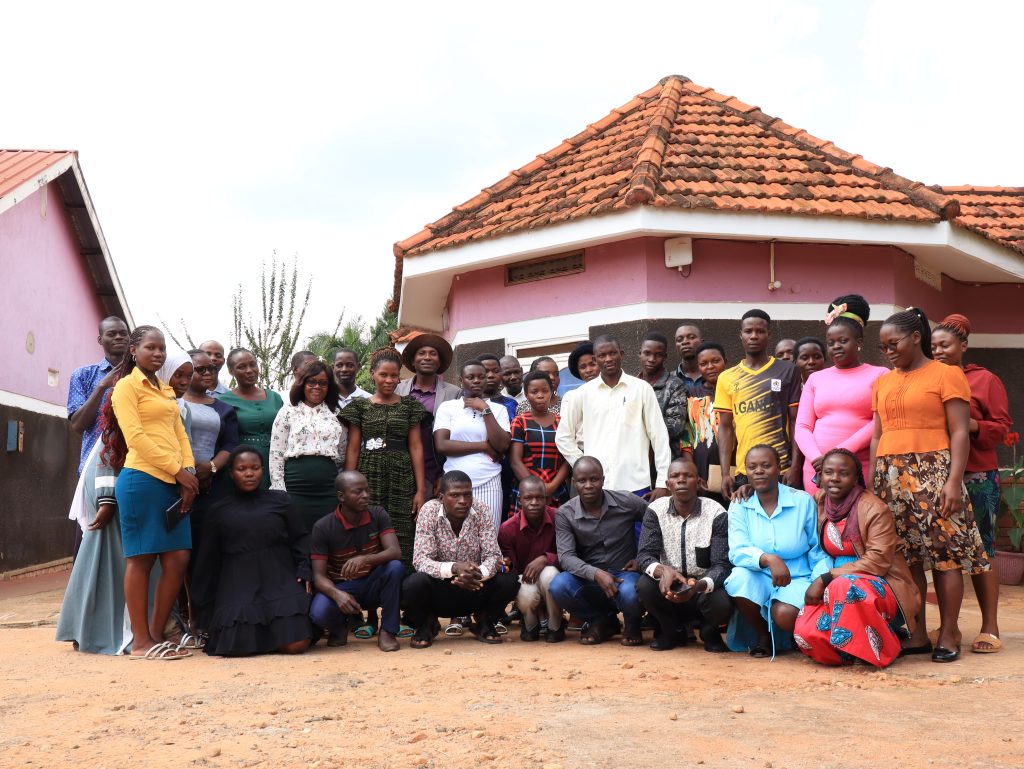
Stimulating Agribusiness for Youth Employment
The Empowering Youth and Women with Life Skills, SRHR, and Economic Opportunities project is being implemented under the Stimulating Agribusiness for Youth Employment (SAYE) program with support from Heifer International. The project operates in Kamuli, Kaliro, and Buyende districts, targeting 10,000 youth and women with interventions that promote health, skills development, and economic empowerment.
The initiative focuses on strengthening young people’s understanding of Sexual and Reproductive Health and Rights (SRHR), improving mental health awareness, and enhancing their capacity to engage in agribusiness and community-led development. Through this approach, AEGY aims to create a generation of informed, resilient, and economically active youth and women who can contribute meaningfully to their communities.
As part of the project implementation, AEGY-Uganda trained Youth Health Champions and Interpersonal Therapy Group (IPTG) facilitators to lead community engagements on SRHR and mental health. These facilitators were also introduced to digital tools such as the Kenga Mobile App to strengthen data reporting and accountability.
Despite challenges such as limited group participation and delays in the distribution of agricultural inputs, the project continues to make steady progress. AEGY is working closely with community facilitators and district partners to ensure youth remain engaged and motivated.
Going forward, the project will expand activities to include:
Rollout of IPTG sessions at Self-Help Group (SHG) level
SRHR sensitization for 10,000 youth and women
Monthly radio talk shows on youth health and empowerment
Establishment of backyard gardens for improved household nutrition
Support creation of youth-friendly spaces in 12 health facilities
Malaria Reduction
With funding from USAID PMI/MRA JSI AEGY is implementing Malaria Reduction Activity covering the whole of Luuka District conducting social mobilization for malaria prevention.

Malaria Prevention Enhancement
The Malaria Prevention Enhancement project, implemented by AEGY in partnership with the Uganda Development and Health Association (UDHA) and supported by TASO, was launched to address the high burden of malaria in Balawoli Subcounty, Kamuli District. This four-month project aimed to enhance malaria prevention, diagnosis, and treatment through community driven interventions. The project was designed to empower local communities to take an active role in combating malaria, through evidence-based social and behavioral change initiatives aimed at increasing awareness and improving malaria prevention and care seeking behaviors.
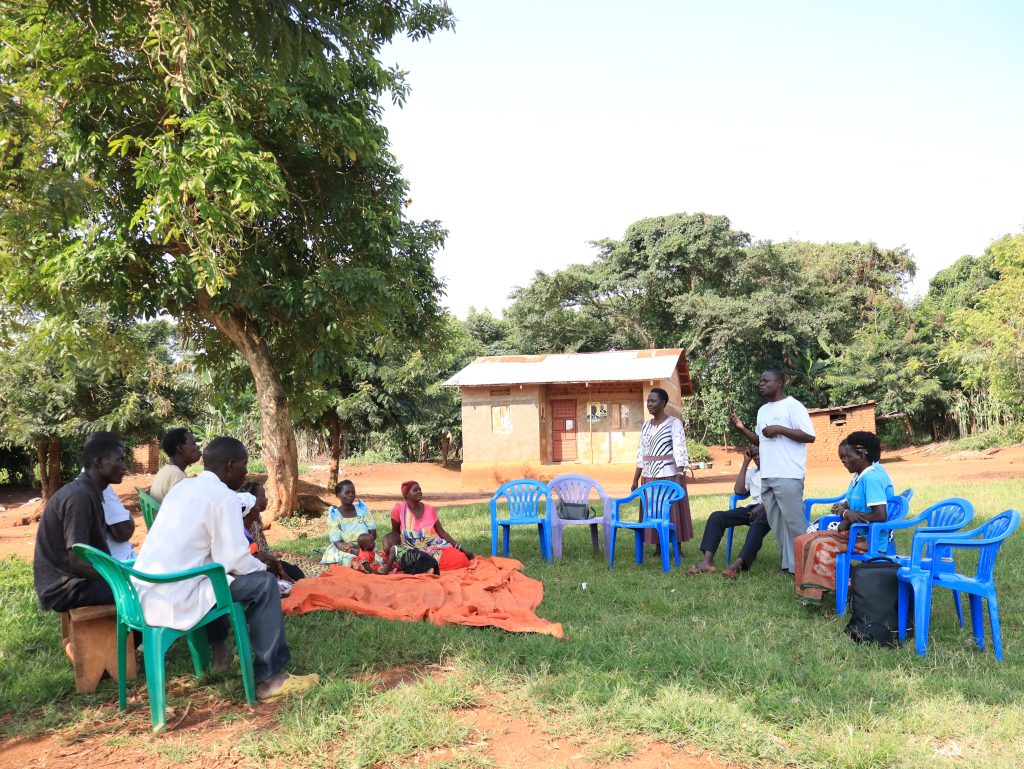
Catalyzing Strengthened Policy Action for Healthy Diets and Resilience (CASCADE)
Catalyzing strengthened Policy Action for Healthy Diets and Resilience Project (CASCADE) is multi-country implemented in Kenya, Benin, Nigeria, Ethiopia, Mozambique and Uganda. In Uganda, the CASCADE consortium comprises of: CARE International, and Global Alliance for improved nutrition with partners; Food Rights Alliance, Africa Innovation Institute and Kyambogo University.
CASCADE’s overall goal is to improve food security and contribute to reduction of malnutrition among 1 million women of reproductive age and children under five years. The target group of the project are; women of reproductive age (15-49), and children under five years of age.
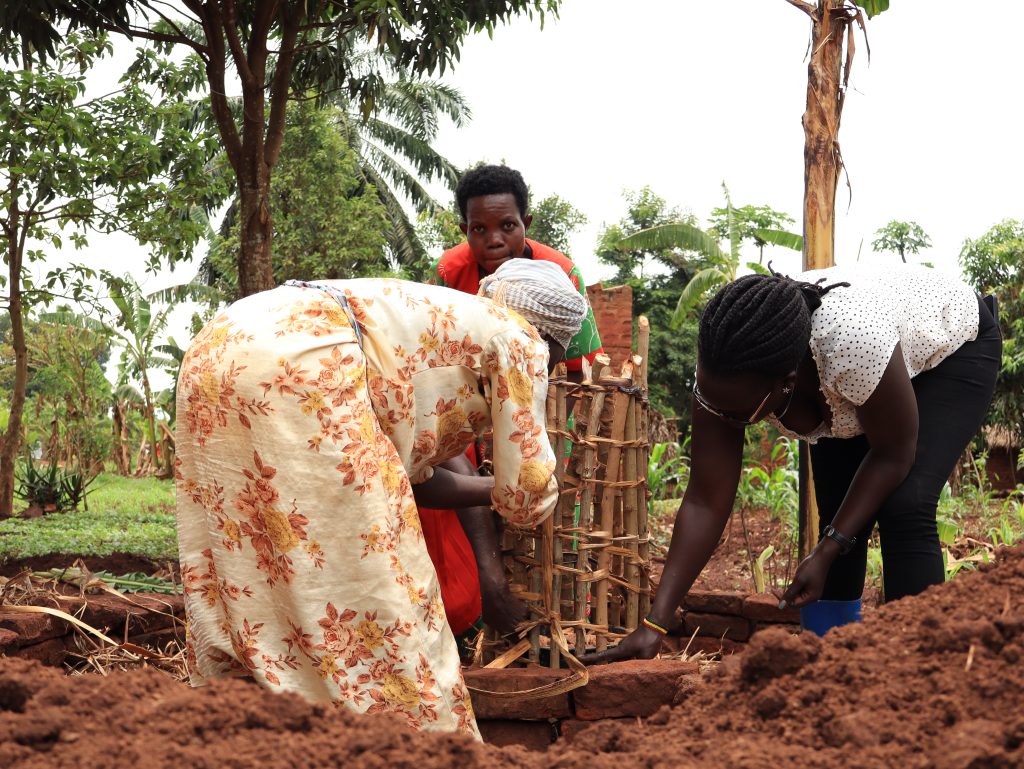
GAVI- Equity Accelerator Fund Immunization demand generation interventions to reach zero-dose and under-immunized children
Immunization Demand Generation Interventions to Reach Zero-Dose and Under-Immunized Children – Uganda
The Immunization Demand Generation Interventions to Reach Zero-Dose and Under-Immunized Children project is part of a broader initiative supported through Gavi’s Equity Accelerator Fund (EAF) to advance equitable access to immunization services. In Uganda, the project is implemented by PATH, in collaboration with AEGY Uganda, under the leadership of the Ministry of Health.
The project focuses on increasing routine immunization coverage by generating community demand and improving access for hard-to-reach populations. Implementation is currently taking place in the Busoga sub-region, specifically in Kamuli, Buyende, and Namutumba districts.
The primary target groups include:
Zero-dose children (those who have not received any routine vaccination),
Under-immunized children, and
High-risk populations susceptible to vaccine-preventable diseases.
The overall goal is to fully immunize every eligible child and priority population and contribute to Uganda’s national immunization targets. Specific objectives include:
Achieving 95% coverage for all antigens by the end of 2028.
Increasing DPT3 coverage to 95% by 2028.
Reducing the percentage of zero-dose children from 3% (2022) to 1.5% by 2025 and 0.5% by 2028.
Eliminating stock-outs of vaccines and related supplies at all levels of the health system by 2028.
Strengthening national and sub-national capacities to identify and reach missed populations, and monitor immunization program performance.
Enhancing the program’s ability to effectively manage resources and promote accountability across all implementation levels.
Through community engagement, behavioral change strategies, and health system support, the project seeks to close immunization gaps and ensure that no child is left behind in the fight against vaccine-preventable diseases.
